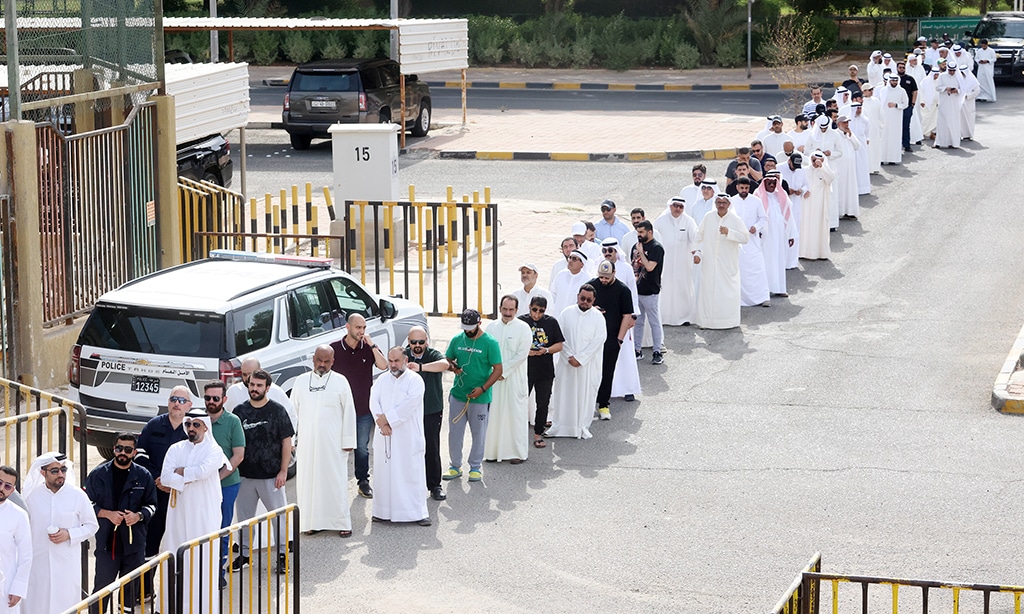By Nebal Snan
KUWAIT: Many polling stations were relatively quiet on Tuesday afternoon, halfway through election day. Just a few hours ago, Kuwaitis queued in long lines to cast their vote in the third parliamentary election in two and a half years, eliminating fears of a low voter turnout which many attributed to voter fatigue. But a little after 5 pm, traffic drastically died down at the Kaifan polling station, surprising voters and campaign coordinators alike. The reason for the dwindling turnout is not clear, but it’s difficult not to consider the role that high temperatures could be playing.
Weather conditions on Tuesday were the hottest yet this month, with temperatures reaching 44 degrees Celsius. Many people may have opted to stay home and away from the scorching heat, especially that Election Day was designated an official holiday. But the few voters who came to fulfil their national duty thought otherwise. “It makes me sad to see that people use the heat as an excuse not to vote. Everyone should take advantage of this opportunity,” said a voter who asked not to be named. “The (right to vote) was hard for us to get.
 Kuwaiti women cast their votes during parliamentary elections in Kuwait City on June 6, 2023.
Kuwaiti women cast their votes during parliamentary elections in Kuwait City on June 6, 2023.There are people in other countries who wish they (could vote) ... This is the role we play in shaping the future of Kuwait. (People) shouldn’t give it up.” A voter, who also asked not to be named said she had voted under harsher weather conditions in previous years. “We’ve had elections in July, August. So, there’s no issue at all,” she said. “All polling stations are air conditioned. We also drive to the polling stations in air-conditioned cars. We’re used to this weather.” She added that having the day off helps people choose the best time to head to the polls while avoiding the hottest time of the day.
 A voter shows a stamp on her citizenship certificate after casting her vote on Tuesday.
A voter shows a stamp on her citizenship certificate after casting her vote on Tuesday.“Some people choose to come in the early morning when it’s relatively cool, while others come after sunset,” she said. Although observations on Tuesday suggest the weather could be affecting voter turnout, research is divided on the debate – Oxford University scientists have found no correlation between voter turnout and the weather. In fact, their research suggests people are more likely to vote if the election race is close. On the other hand, research carried out by the Economic and Social Research Institute (ESRI) in the Republic of Ireland found that poor weather, specifically rain, could stop people from going to vote.
A campaign coordinator who preferred to remain anonymous said the weather could discourage some people from coming, but "it’s not the main factor”. “We’re expecting more people to come after Maghreb prayers," she hoped. She said more could be done to help voters at some polling stations brave the heat. The parking lot in some schools designated for voting is far away from the building, she said, making it challenging for people to get to the ballot boxes in the sweltring heat.
“Not everyone can walk long distances in the heat,” she said. The elderly and people with disabilities are allowed to be dropped off or park their vehicles closer to the entrance, Kuwait Times found. “Whether (polling stations are) close or far, I would come to vote either way. Nothing would stop me from voting,” said one determined voter.










